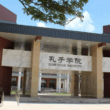No one in this PF government is willing to admit that Zambia is in a debt crisis. They have found all sorts of fancy names for it, but not a crisis. The President, the Minister of Finance, the Chief Government Spokesperson, as well as the Patriotic Front leadership is being economical with the truth on this matter.
Let’s face it; Zambia is under debt distress. What are the indicators of that? 30 per cent of its revenue is going towards debt servicing at the moment and it is common knowledge that emoluments for Zambia account for about 65 per cent of its earnings. The 30 per cent has been taken away from project investments; the 30 percent has been taken away from spending on social needs of the country; the 30 per cent has eaten into the reserves. That is the truth.
Right now the reserves for the country are just about one and half month worth of imports, when just about 10 years ago Zambia was boasting about having over four months import cover. We have completely depleted our reserves. This is the lowest we have gotten to in many years and the creditors in Europe are already classifying us as a country that is getting into a junk bond very soon, if government doesn’t do something drastic.
It is not out of jealousy that the owners of the Eurobond are apprehensive about China. They have given government a strong caution, they want Zambia to go the IMF route because they feel that is the only cure right now for the country to come back from its potential disaster.
But we know that the government of President Edgar Lungu, Margaret Mwanakatwe and Dora Siliya is not happy with the IMF for two reasons; number one, they are looking at how much money IMF will give them. Of course we agree with them that the money is small compared to the problems they have created in the economy, but they know as much as we do that an IMF bail out package secures investor confidence and improves the credit rating of the borrower. Secondly, they don’t want IMF help because they know that they don’t have the fiscal discipline to implement resource accountability. They don’t want anyone having a say on how they are spending and stealing from the Treasury through unproductive expenditure.
However, that is the only insurance that the current bondholders have. They know that once IMF comes in, the management of fiscal affairs, the deficit is going to reduce, government will be spending less.
Let us look at the recent auctions of the treasury bills and the bonds, where there was an under subscription and government had to turn to NAPSA to finance the balance. The current holdings right now, the current foreign investment in treasury bills and cooperate bonds is about US$700 million, which is about 35 per cent of the reserves. This government doesn’t want people to know the severe implications of this situation.
What this means is that because of the debt stress right now, the creditors are getting worried. If all these foreign investors decide that they don’t want to roll over the US $700 million, it means that government has to find that US $700 million from the reserves again because they invested in kwacha and when they want their money; they get it in dollars and where do they find the dollars? From the reserves! So this alone is threatening the financial health of the country and this is a very important measures about the debt distress.
Some people are already joking that the reserves are already determined in terms of application because they go towards debt servicing so, in the true sense of Emergency Funds, we do not have. Since some foreign investors in the government securities are not rolling over the investment, the Kwacha is beginning to feel the pressure, and it should not surprise anyone if it trades at K11 in a few weeks from now.
What’s wrong with help from China? The problem with the Chinese model is that China actually takes away the foreign reserves. It doesn’t bring any cash in Zambia. So when we pay them cash for the infrastructure loans they are bringing, they are actually getting our dollars back to China. This government and everyone in it who is defending Chinese loans, knows that China just brings equipment not cash. They know that China will never give balance of payments support. It will never give us import cover. That is why the refinancing initiatives of government may not even work.
China may stretch its own loans, they may agree to restructure the repayment periods etc, but we don’t see China coming forward to refinance foreign loans because those foreign loans are not in the interest of China. That money which came from the Eurobond had nothing to do with Chinese investment or Chinese infrastructure building or Chinese contracts. It’s none of there business.
So how does Minister Mwanakatwe expect China to bail her out when they were never involved in the agreements and interests of other lenders? Whatever China does they do it with their own people, their own companies, their own finance. So refinancing a Eurobond which they didn’t participate in, in terms of how it was used, is not going to happen.
The Eurobond had nothing to do with the Chinese people so Zambia will have to repay that debt as soon as it matures while also toiling to satisfy the new Chinese loan obligations.
In our layman’s understanding, this is what debt distress is. So when our economists are exchanging blows over who is right regarding the definition of Zambia’s debt, we wonder why they are trying to confuse citizens with all sorts of complicated lingual on a straight forward matter.
UNZA lecturers are on go-slow because government is failing to pay its support obligation to the institution, civil servants are getting salaries late, contractors are not getting their money, Cabinet is selling off assets while toiling around the world looking for financial support on top of the ballooning nkongole they already have. How else can we define this situation other than a debt crisis? Anyway, call its debt Christmas if you want, the point is, we are totally screwed up – thanks to the Great Leader of this Great country.












